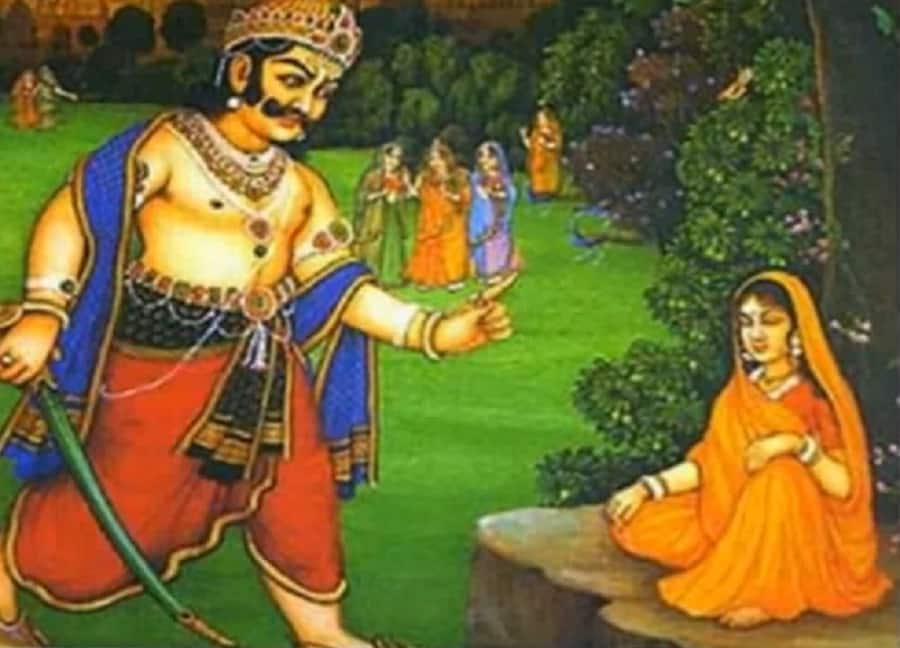The abduction of Mother Sita by Ravana, a notable incident in the epic Ramayana, is widely recognized. In this narrative, Ravana forcefully abducts Mother Sita and transports her to Lanka. But there is a widespread belief that, despite kidnapping Mother Sita, Ravana never resorted to forcing her. Some attribute his purported gentlemanly conduct to seeking retribution for his sister. However, the actual narrative might unveil a different perspective.
In contemplating the saga of Ravana and Mother Sita, divergent perspectives abound. Some assert that Ravana, in his greatness, refrained from laying a lustful hand on Mother Sita. However, an alternate narrative unveils a different reality. Legend has it that in antiquity, pleased by Ravana's penance, Lord Shiva bestowed upon him an invincible sword, amplifying his strength. Driven by the desire to conquer all three worlds, Ravana embarked on a Trilok conquest campaign. During a celestial sojourn, Ravana found himself in the midst of heaven with his formidable army. It was in this ethereal setting that Rambha, the preeminent Apsara of heaven, crossed his path.
Captivated by Rambha's allure, Ravana succumbed to lust and, without consent, enfolded her in his arms. Startled, Rambha revealed her marital ties to Nalakuvara, the son of Ravana's elder brother Kubera, establishing a familial connection akin to a daughter-in-law. However, Ravana derides her, stating that an apsara is not bound to anyone. And despite this revelation, Ravana persisted, forcefully engaging in a union with Rambha. The repercussions were swift, as Rambha, trembling with shame, confided in Nalakuvara.
Infuriated by Ravana's transgression, Nalakuvara promptly pronounced a curse. The curse foretold that any future instance of Ravana indulging in lustful pursuits without a woman's consent would result in the shattering of his head into myriad pieces. It is postulated that this curse from Nalakuvara prevented Ravana from ever making any lascivious advances towards Mother Sita. Hence, this narrative questions the perception of Ravana being a gentleman and brings attention to the repercussions of his actions as outlined in the curse.













0 comments:
Post a Comment